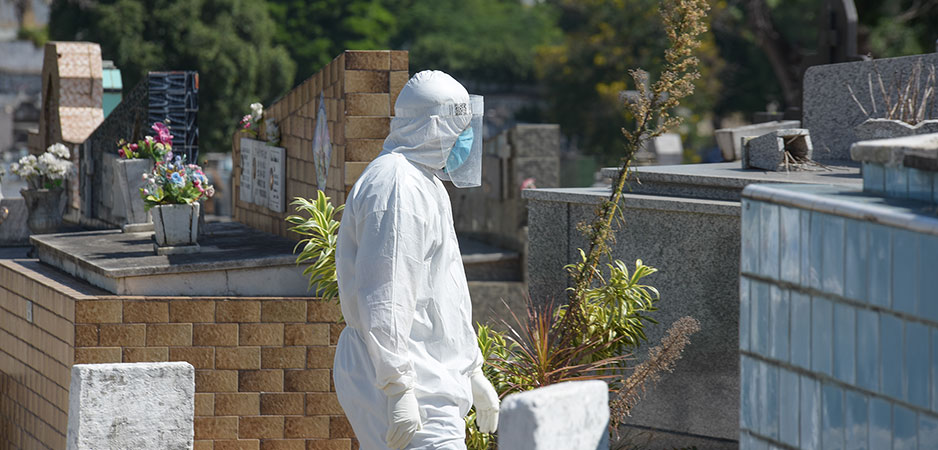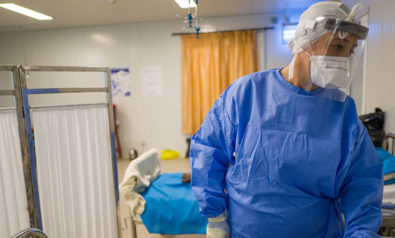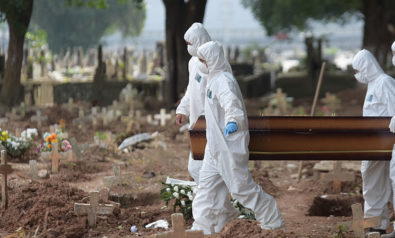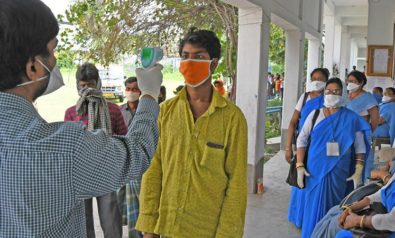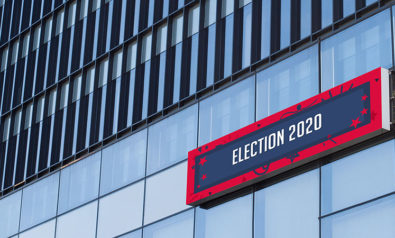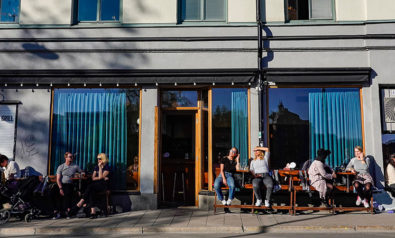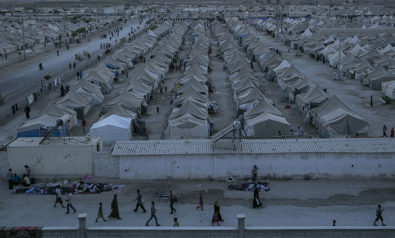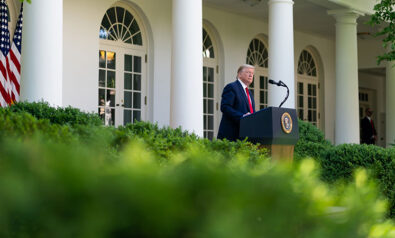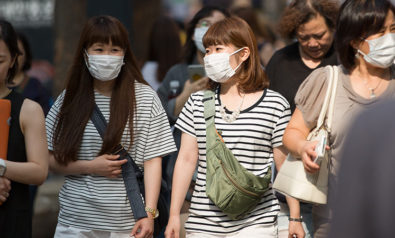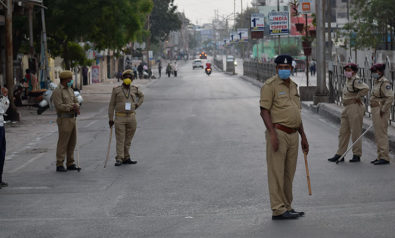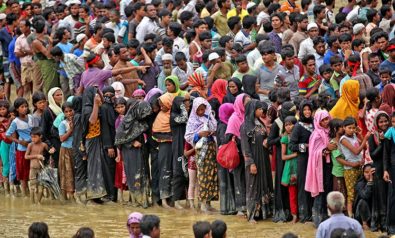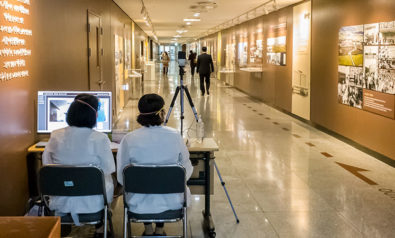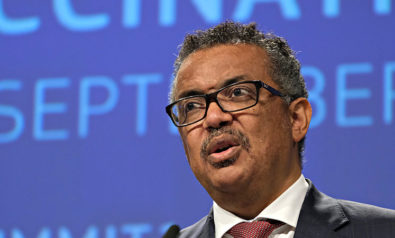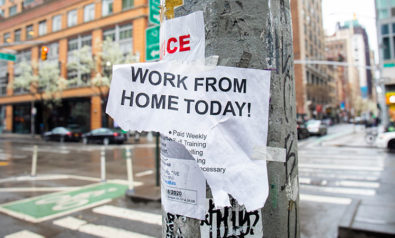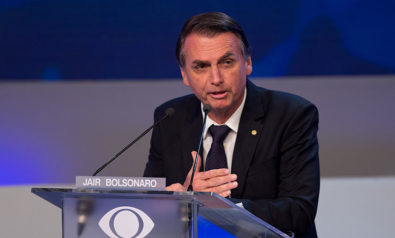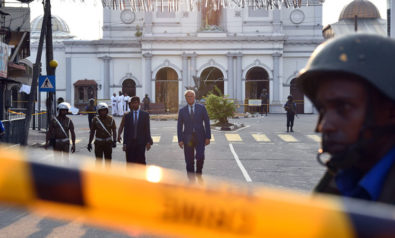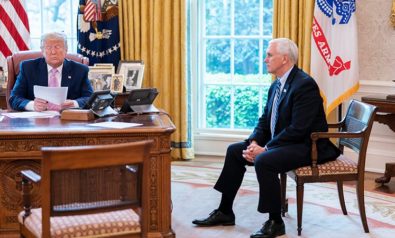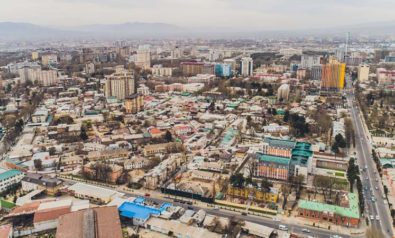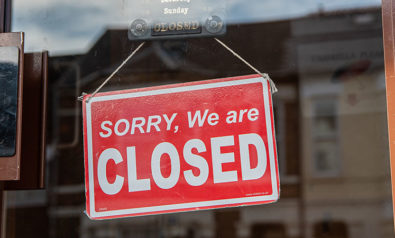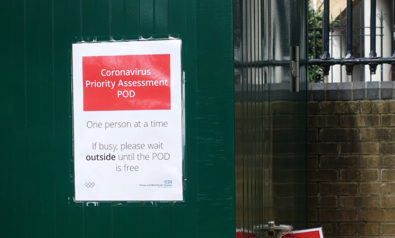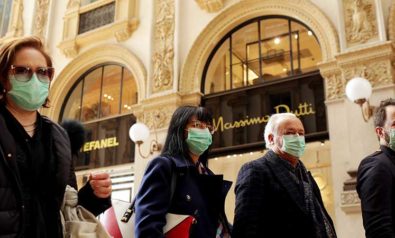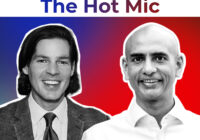Brazil’s President Jair Messias Bolsonaro seems to be trying to go down a different route than the rest of the world when it comes to the COVID-19 crisis. While the “Trump of the Tropics” has been following US policy on many fronts, Donald Trump has stepped back from his earlier claims that the coronavirus is a “hoax” and implemented strict containment measures across the United States. Bolsonaro, however, has continued his attacks on social distancing and other lockdown measures introduced by local governments, playing down the crisis and disregarding safety regulations.
Brazil’s first case of COVID-19 was officially reported on February 25, in the metropolis of Sao Paulo. The infected patient had recently returned from a trip to Lombardy, in northern Italy, which soon became the epicenter of the outbreak outside China. As elsewhere, the total number of cases has been growing exponentially. The current testing policy already places Brazil in the top 10 countries with most confirmed cases. At the time of writing, Brazil has over 100,000 confirmed cases and at least 7,000 deaths.
On strategy, Bolsonaro is going down the Swedish route, despite the fact that Stockholm is yet to prove the effectiveness of its approach. When it comes to communication, however, Bolsonaro stands in a league of his own. As Brazil’s death toll crossed the 5,000-threshold last week, Bolsonaro told reporters: “So what? I’m sorry. What do you want me to do? I’m Messiah but I can’t perform miracles.” This “humorous” tone dates back from early March, when Bolsonaro, replying to reporters’ questions on the possibility of a lockdown, said: “I’m sorry, some people will die, they will die, that’s life. You can’t stop a car factory because of traffic deaths.”
Federal Versus Local
Not all Brazilian governors and mayors agree, however. As a federal republic, Brazil grants its states a large degree of autonomy. This autonomy is at the heart of the current political crisis, as federal government initiatives and rhetoric do not always align with measures undertaken on the local level. In Brasilia, the federal government is struggling to find its narrative, and it has been difficult for the president to convince his cabinet of an open policy approach. On April 16, the popular minister of health, Luiz Henrique Mandetta, was fired after a disagreement with Bolsonaro over the implementation of the guidelines set by the World Health Organization, transforming a health crisis into a truly political one.
Mandetta had attempted to align national policies with state and city-level initiatives, but the standoff cost him his job. The decision to fire him was viewed negatively by 64% of Brazilians, and Mandetta leaves office with 70% approval rating. Bolsonaro then nominated the oncologist Nelson Teich to the post, who now has the challenge of the century on his desk. The minister of health is expected to provide a solution that will end social distancing and get the economy back on track, all while containing the pandemic.
But Bolsonaro — who aligns with Trump on many fronts from political style to policy — has yet to define a clear and comprehensive approach to combat the pandemic. Different from the (albeit belated) US approach, Brazil failed to implement even the most common restrictions, such as on internal travel, or order mandatory social distancing or the temporary closure of shops.
While the policy of keeping the country open remains the official guideline, governors and mayors launched a myriad of initiatives to tackle the pandemic, from city-wide lockdowns to building temporary hospital facilities and setting $100 fines for the elderly ignoring self-isolation mandates. The governor of Sao Paulo, Joao Doria, announced a lockdown of Brazil’s most populous state and the country’s economic and financial hub.
Sao Paulo’s lockdown was heavily criticized by Bolsonaro on social media. On March 25, the president posted on Twitter a call for shops to reopen: “If companies do not produce, they won’t pay salaries. If the economy collapses, public workers won’t get paid either.” But his words largely fell on deaf ears in Rio and many other states across the country.
Among his few initiatives, Bolsonaro recently requested congress to declare a state of emergency in order to unlock some additional federal funds to tackle the crisis but changed his stand a week later when he publicly criticized state governors and characterized their lockdown measures as extreme and harmful to the economy. He also announced some financial help to independent workers affected by the crisis, which caused people to crowd in front of banks to withdraw their allowance. Finally, he also started partnerships to produce masks in federal prisons and has so far repatriated 13,000 people.
From Stockholm to Brasilia
Bolsonaro is not alone. Other leaders around the globe have been prioritizing economic stability over adopting strict lockdowns to contain the virus. In Sweden, Prime Minister Stefan Löfven’s nationwide strategy relies on each citizen’s responsibility to self-isolate if you exhibit any of the coronavirus symptoms. Sweden did not implement a lockdown as most other European countries have, instead limiting large gatherings to 50 people on April 24, closing universities and secondary schools to students over 16, and restricting visits to nursing homes.
As of May 3, 2,769 people have died in Sweden due to the coronavirus. This places Sweden, which has a population of 10 million, just below Canada — 3,727 deaths in a population of 37 million — or 14th globally. Sweden has also more deaths than its neighbors both in absolute numbers and in deaths per million (274 in Sweden, against 85 in Denmark, 43 in Finland and 39 in Norway). The argument, however, is that once countries begin to reopen, those with stricter lockdowns will see a second wave of infections while Sweden would have already surpassed it.
The core argument here is that lockdowns are not sustainable in the long run. Anders Tegnell, Sweden’s chief epidemiologist, believes that, compared to its neighbors, Sweden will experience just one wave of infections, while other countries will have a second wave that will bring the numbers up. According to Tegnell, since COVID-19 will not be eradicated anytime soon, policies should focus on finding “sustainable solutions that keep the virus’s circulation manageable for a long period to come.” Therefore, the few restrictions imposed would be enough to “to slow down the spread of the virus to such an extent that the healthcare system and society won’t collapse.”
This theory is soon to be tested as Norway started reopening schools on April 27. A new peak in Norway would prove Sweden’s position on the low effectiveness of lockdowns. But if Norway manages to contain the new spread, this would cast shadow to the credibility of Stockholm’s approach.
Sweden and Brazil seem to align around voluntarism: Let people voluntarily take measures to protect those around them rather than imposing a total lockdown, coupled with the belief that the health system can take care of those who need the most. Such a combination is believed to do less harm to the economy while at the same time limiting the health crisis.
The key difference between both governments is down to the rhetoric around COVID-19 and the actual ability of their health systems to absorb all patients in need. Tegnell defends the government’s strategy for “a slow spread of infection [in order to] ensure that the health services have a reasonable workload.” The public in Sweden seems to have complete trust in the health-care system to combat the epidemic. This is not the case in Brazil, where the media have shed a light on the risks the pandemic poses to those living in impoverished conditions, especially the favelas.
Although the Brazilian health system is universal and free, its limits are to be tested in the case of a spike in new infections. For instance, some of the smaller states already surpassed 90% of occupancy of intensive care units, which places doubt on the approach defended by Brasilia and justifies the measures taken by the governors in spite of the federal guidelines.
Bolsonomics
The economic concerns raised by President Bolsonaro are valid, but by focusing solely on the financial aspects of the crisis rather than the loss of life, Brazil risks going down a road of uncertainty and potentially even bigger economic problems. Brazil has reason to worry about the impact the virus will have on its fragile economy, which has seen stagnant growth and increased inflation, while the stock markets are crashing and the dollar exchange rate is at its highest level in history: Today, one US dollar costs 5.57 reais, a jump of 30% from the previous year.
On the financial front, Bolsonaro tried to approve a provisional rule aiming at addressing labor concerns, which caused protests among workers. Its Article 4 would allow employers to freeze job contracts for up to four months while also suspending salaries as long as the employee was provided with some sort of training program in the meantime. This controversial article was later removed, while other key articles were retained. For instance, remote work is now more flexible when it comes to the provision of equipment (such as computers and an internet connection), which before was the employer’s responsibility and now can “be set in agreement between parties.”
Also, the employer can now decide whether to implement remote work or to simply consider the lockdown period as part of the annual paid leave, leaving little choice to employees. The government expects to prevent companies from firing workers with these flexible measures in place.
The Brazilian supreme court also requested the government to suspend the ongoing cuts to social benefits, specifically in the “Bolsa Familia” program inherited from Luiz Inacio Lula da Silva’s presidency. These cuts, which started before the crisis, were justified as an attempt to rebalance public expenses and to reevaluate such benefits as the government believes many of the beneficiaries do not meet the criteria. Bolsonaro later announced some direct cash to support independent workers during the crisis, from 200 reais proposed by the government to 600 reais approved by the Congress, or $120, which currently corresponds to about 60% the national minimum wage.
What seems to be lacking in this crisis is effective communication. Although the management of the pandemic has not substantially impacted Bolsonaro’s popularity, a recent poll shows that 51% think the president’s attitude hurts the effort more than helping it. Bolsonaro has also been a strong defender, along with Trump (who has since backtracked on his earlier comments regarding its efficacy following failed trials) of the use of chloroquine against COVID-19. On April 8, Bolsonaro reminded his followers on Twitter that he has been preaching for chloroquine for the last 40 days.
Sweden’s example may give some peace of mind to Brazilians who struggle to understand their president’s approach. The government might seem to be abandoning them, but maybe it is not, as one would not say the government in Sweden is abandoning its citizens. It seems, though, that Bolsonaro’s approach, while relying so much on the economic argument, does not explain the reasoning behind it. This lack of clear communication on the government’s intentions may be the reason why the no-lockdown policy is rejected by his ministers and governors, and also by the media and the population, as polls have shown.
High Stakes
Bolsonaro still needs to prove to the people of Brazil that he has an actual plan to address the crisis instead of initiating political disputes with state governors and mayors. As in the United States, most initiatives come from the federal states that have enough autonomy and flexibility to act on the necessary fronts to tackle the crisis. Bolsonaro is still to understand that he cannot unilaterally impose an approach he wants and that he will lose supporters if he is seen as the reason for the deepening of the crisis. Furthermore, his most vocal opponent in this health crisis, Governor Joao Doria of Sao Paulo, made little effort to hide his intentions to run in the 2022 election. Bolsonaro will soon understand that the coronavirus and the economic crisis which will follow have kick-started the election campaign.
If Brazil is to follow a policy of slow transmission, like Sweden, recruiting additional health-care workers, buying medical equipment to reinforce its health system and ensuring serious federal support to individual states will be imperative to ensure the country is not brought to its knees. Brasilia could also profit from closer cooperation with Sweden to both find justification locally — by implementing some positive measures instead of simply trying to ignore the problem — and internationally, by following Sweden’s social experiment in a more concerted way.
The stakes are high, though. The US example proves that even with serious measures in place, whether timely or not, a country can still become the epicenter of the global pandemic with a fast-growing death toll. Unluckily for Bolsonaro, trying the Swedish model in Brazil — a country 22 times bigger in terms of population — is a bet the governors are not willing to take. Such a bold policy decision would need to be approved by the wider Brazilian public as a result of a broad and comprehensive discussion to assess the economic risks of the lockdowns vis-à-vis the risk of a substantial increase in deaths.
In either case, more discussion is warranted, and, as of now, the president seems to be avoiding any public scrutiny of government policy. Bolsonaro’s new health minister already stated in a press conference held on April 30 that a flexibilization of social distancing is not desirable in the current situation. Changing ministers was not sufficient for Bolsonaro to sell his approach, and he might need to find new ways to get public support to his endeavors if he is still willing to defend them. Clearly more democracy, rather than less, seems to be the best way forward to find the way out of this crisis.
The views expressed in this article are the author’s own and do not necessarily reflect Fair Observer’s editorial policy.
Support Fair Observer
We rely on your support for our independence, diversity and quality.
For more than 10 years, Fair Observer has been free, fair and independent. No billionaire owns us, no advertisers control us. We are a reader-supported nonprofit. Unlike many other publications, we keep our content free for readers regardless of where they live or whether they can afford to pay. We have no paywalls and no ads.
In the post-truth era of fake news, echo chambers and filter bubbles, we publish a plurality of perspectives from around the world. Anyone can publish with us, but everyone goes through a rigorous editorial process. So, you get fact-checked, well-reasoned content instead of noise.
We publish 2,500+ voices from 90+ countries. We also conduct education and training programs
on subjects ranging from digital media and journalism to writing and critical thinking. This
doesn’t come cheap. Servers, editors, trainers and web developers cost
money.
Please consider supporting us on a regular basis as a recurring donor or a
sustaining member.
Will you support FO’s journalism?
We rely on your support for our independence, diversity and quality.


